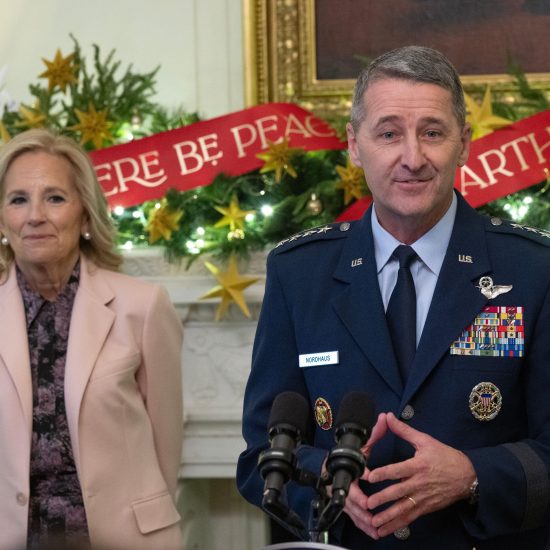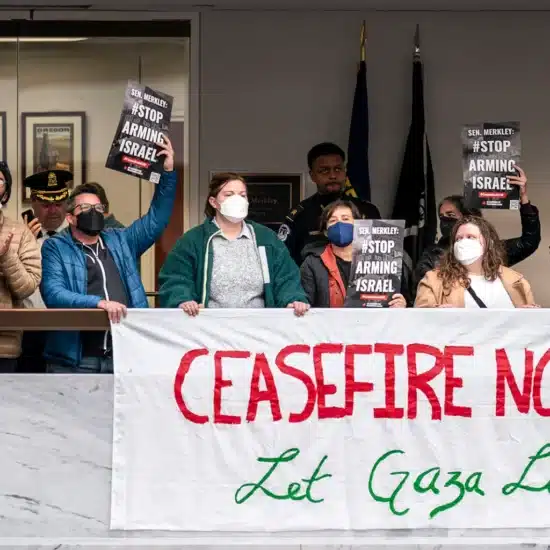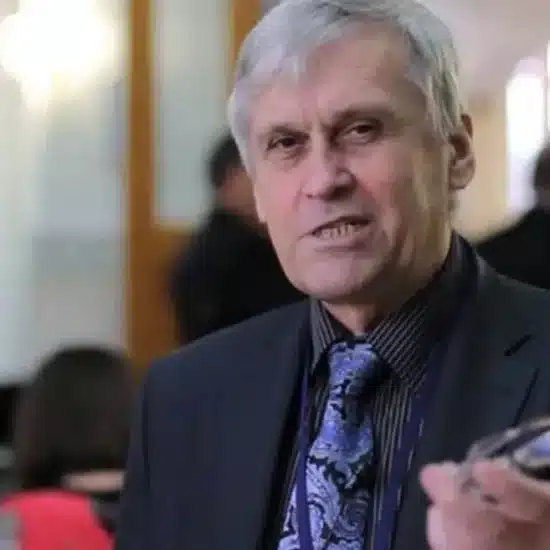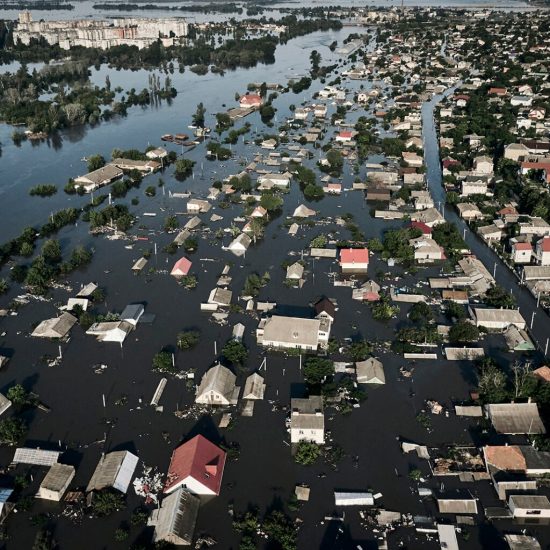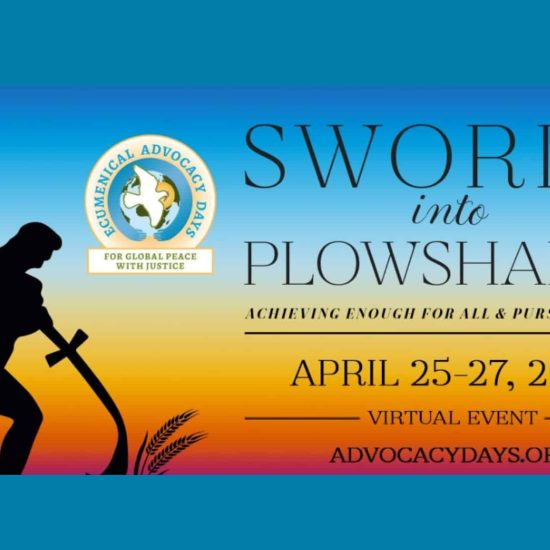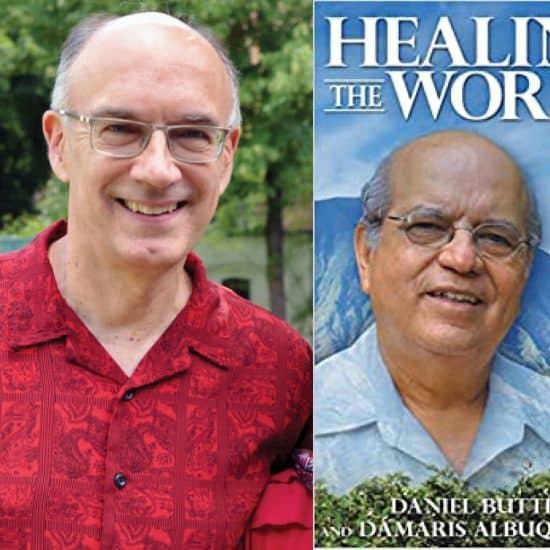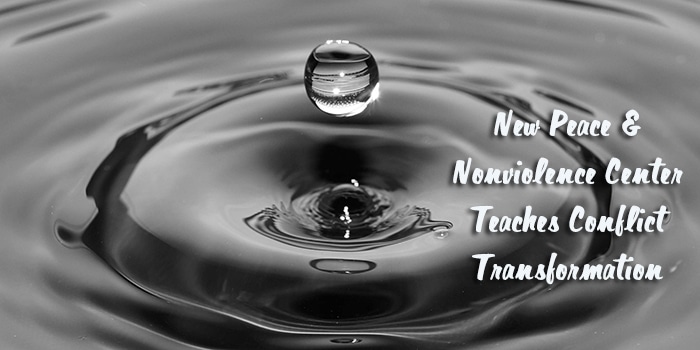
For ten days in August, about 40 people from seven nations gathered at Central Baptist Theological Seminary in Shawnee, Kan., for an intensive training on conflict transformation. The first major program of CBTS’s new Buttry Center for Peace and Nonviolence, the Training for Conflict Transformation Trainers was led by Dan and Sharon Buttry and Benjamin Kam Sian Muang. In addition to CBTS students and other U.S. participants, the training also drew participants from Bangladesh, Japan, Myanmar, Nicaragua, Thailand and the United Kingdom.
“It’s been tough for the ten days; it’s been tiring,” said Mariam Tadros, peacebuilding programme coordinator for Tearfund in the United Kingdom. “But having a whole toolbox of ways to think about, deal with, tackle, strategize for peace with has been a real gift.”
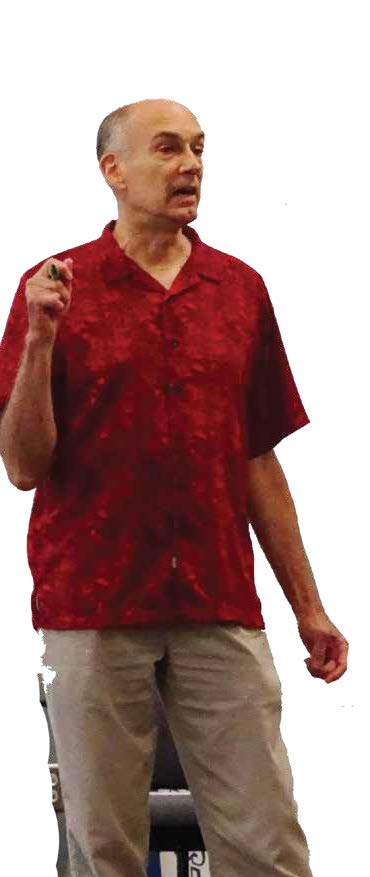 Dan Buttry leads a discussion on trauma cycles. (Brian Kaylor/Word&Way)“What I’ve really loved about the training has been the kind of experiential aspect of it,” she added. “Dan and Sharon — with immense experience both in the U.S. and overseas, having really lived what it means to build peace — just bring their whole selves to the training and the different activities, the different ways of looking at conflict, of understanding conflict, of experiencing your own conflicts within you. It’s been quite a journey.”
Dan Buttry leads a discussion on trauma cycles. (Brian Kaylor/Word&Way)“What I’ve really loved about the training has been the kind of experiential aspect of it,” she added. “Dan and Sharon — with immense experience both in the U.S. and overseas, having really lived what it means to build peace — just bring their whole selves to the training and the different activities, the different ways of looking at conflict, of understanding conflict, of experiencing your own conflicts within you. It’s been quite a journey.”
The conference included studying scriptural passages, interactive skits (including some based on biblical stories), resources on a variety of conflictrelated topics and times of large and small-group discussion, as well as times for participants to reflect and plan for a project in their own context. With ten day-long sessions running into the evenings, the participants learned many “tools” to put in their “toolbox” that could be used in future scenarios.
Cynthia Saddler, a Baptist minister who leads the nonprofit Girls Leading Our World, Inc., said that “attending this workshop has given me a lot of focus and a lot of ideas that I can use in several organizations that I’m involved in.” She added, “It’s an investment well made!”
Reflecting on the “incredibly energetic and high-functioning group,” Dan Buttry called it an “exciting” training conference with a “rich international diversity.” He added that he calls this training “the graduate level of the university of the streets” with the participants bringing a lot of experiences and creative perspectives to the sessions.
Muang, who is from Myanmar and co-facilitated the training, called it “really good and fruitful.”
“I have seen that this conference helped to see the relatedness of religion/theology, secular theories and practical matters in transforming society and building peaceful society,” he added. “And this conference also encouraged people to facilitate their respective communities by adapting what they have learned from this conference.”
Muang, who previously attended an earlier training conference to learn from the Buttrys, also reflected on his experience at CBTS in serving alongside the Buttrys as a co-facilitator. He called it “a great opportunity and privilege for me.”
“They are my heroes for peacebuilding and parents for young peacebuilders including me,” he added. “From my experience of co-facilitating with Dan and Sharon, I learned teambuilding skills, team works, personal spirituality of peacebuilder, creative and critical thinking and how to facilitate the group effectively.”
Although a belief in peace and nonviolence undergirded the approach to conflict transformation, that does not mean the conference focused on how to avoid conflict. In fact, some sessions centered on how nonviolent conflict can be healthy and even needed.
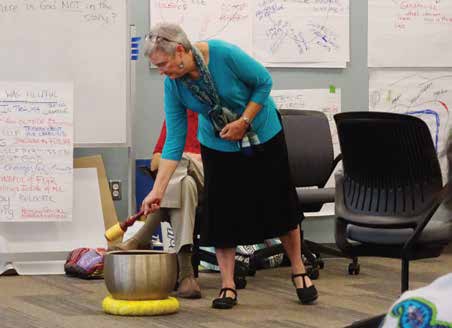 Sharon Buttry strikes a bell during a time of meditation. (Brian Kaylor/Word&Way)Suresh Roy, a judge and Baptist minister in Bangladesh, called the conference “very helpful.” He noted that “conflict is sometimes feared,” but noted that it can be “holy ground” because it can help people learn about themselves, about others and about God.
Sharon Buttry strikes a bell during a time of meditation. (Brian Kaylor/Word&Way)Suresh Roy, a judge and Baptist minister in Bangladesh, called the conference “very helpful.” He noted that “conflict is sometimes feared,” but noted that it can be “holy ground” because it can help people learn about themselves, about others and about God.
“There is a great opportunity to do something good for those who are victimized and those who are marginalized,” he added.
A focus on those experiencing the trauma of conflict or oppressive socio-political situations was a topic addressed in many sessions — and also expressed by some of the participants living in such contexts. Sharon Buttry noted many of the participants brought their experiences from “either very current or entrenched trauma and conflict as part of their narrative.” That included participants from Myanmar and Nicaragua, as well as two African-American women reflecting on impacts of U.S. policies and systemic racism.
“So, when we talk about mainstream and margin, when we talk about social trauma, when we then empower folks here to use the experiential education cycle — which includes experience, reflection, generalizing and application,” she added, “when we do that it’s very empowering for people.”

